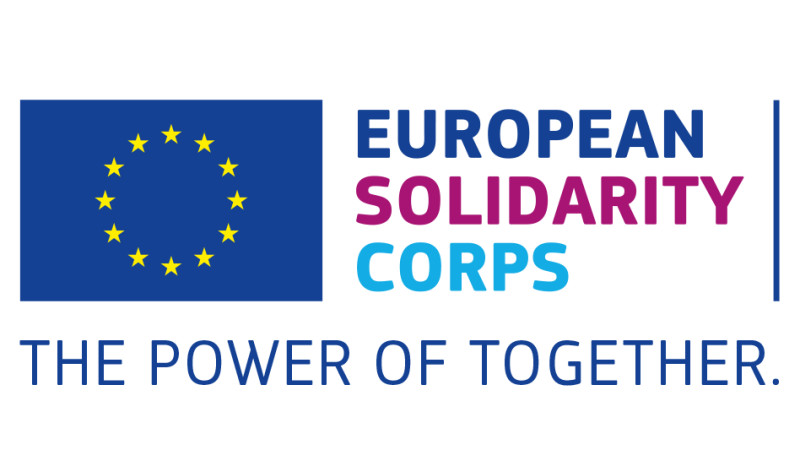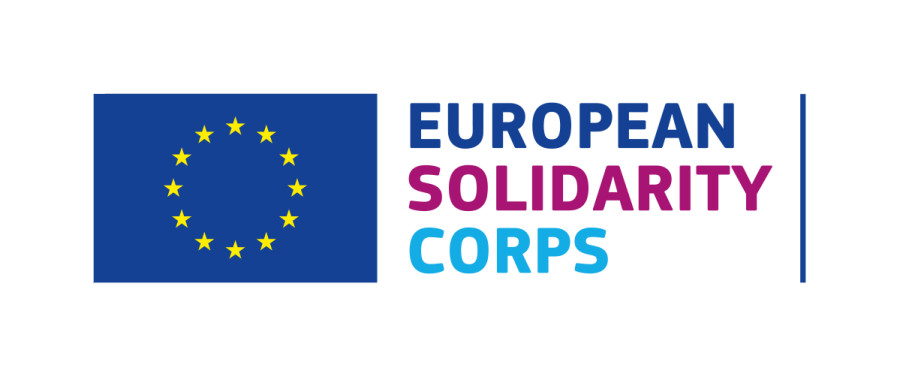–í –ø–µ—Ä–∏–æ–¥–∞ —Ñ–µ–≤—Ä—É–∞—Ä–∏ –∏ –º–∞—Ä—Ç 2025 Uspelite.bg –ø—Ä–æ–≤–µ–¥–µ –Ω–æ–≤–∞ –≤—ä–ª–Ω–∞ –æ—Ç –∞–Ω–∫–µ—Ç–∏—Ä–∞–Ω–µ —Å—Ä–µ–¥ —É–∫—Ä–∞–∏–Ω—Å–∫–∏ –≥—Ä–∞–∂–¥–∞–Ω–∏, –ø–æ—Ç—ä—Ä—Å–∏–ª–∏ —É–±–µ–∂–∏—â–µ —É –Ω–∞—Å. –ò–Ω–∏—Ü–∏–∞—Ç–∏–≤–∞—Ç–∞ –µ —á–∞—Å—Ç –æ—Ç –¥–æ–±—Ä–æ–≤–æ–ª—á–µ—Å–∫–∏—è –ø—Ä–æ–µ–∫—Ç –ø–æ –ï–≤—Ä–æ–ø–µ–π—Å–∫–∏—è –∫–æ—Ä–ø—É—Å –∑–∞ —Å–æ–ª–∏–¥–∞—Ä–Ω–æ—Å—Ç (–ø—Ä–æ–µ–∫—Ç ‚Ññ 2024-1-BG01-ESC51-VTJ-000216350), –∫–æ–π—Ç–æ —Å–µ —Ä–µ–∞–ª–∏–∑–∏—Ä–∞ –≤ —Ä–∞–º–∫–∏—Ç–µ –Ω–∞ –ø—Ä–æ–≥—Ä–∞–º–∞—Ç–∞ –Ω–∞ –ï–≤—Ä–æ–ø–µ–π—Å–∫–∏—è —Å—ä—é–∑ –∑–∞ —Å–æ–ª–∏–¥–∞—Ä–Ω–æ—Å—Ç –∏ –≤–∫–ª—é—á–≤–∞–Ω–µ –∏ Uspelite.bg —Å–∞ –ø–∞—Ä—Ç–Ω—å–æ—Ä –ø–æ –Ω–µ–≥–æ.
======= Text in English ======= –¢–µ–∫—Å—Ç —É–∫—Ä–∞—ó–Ω—Å—å–∫–æ—é ======= –¢–µ–∫—Å—Ç –Ω–∞ —Ä—É—Å—Å–∫–æ–º =======
–¶–µ–ª—Ç–∞ –µ –¥–∞ —Å–µ —Å—ä–±–µ—Ä–µ –¥–æ—Å—Ç–æ–≤–µ—Ä–Ω–∞ –∫–∞—Ä—Ç–∏–Ω–∞ –Ω–∞ –∂–∏–≤–æ—Ç–∞, –ø—Ä–µ–¥–∏–∑–≤–∏–∫–∞—Ç–µ–ª—Å—Ç–≤–∞—Ç–∞ –∏ –Ω—É–∂–¥–∏—Ç–µ –Ω–∞ —É–∫—Ä–∞–∏–Ω—Å–∫–∏—Ç–µ –±–µ–∂–∞–Ω—Ü–∏ –≤ –ë—ä–ª–≥–∞—Ä–∏—è.
–ê–Ω–∫–µ—Ç–∏—Ç–µ —Å–µ –ø–æ–ø—ä–ª–≤–∞—Ç –∞–Ω–æ–Ω–∏–º–Ω–æ –∏ –Ω–∞ —á–µ—Ç–∏—Ä–∏ –µ–∑–∏–∫–∞ – —É–∫—Ä–∞–∏–Ω—Å–∫–∏, —Ä—É—Å–∫–∏, –±—ä–ª–≥–∞—Ä—Å–∫–∏ –∏ –∞–Ω–≥–ª–∏–π—Å–∫–∏, –∫–æ–µ—Ç–æ —É–ª–µ—Å–Ω—è–≤–∞ —É—á–∞—Å—Ç–∏–µ—Ç–æ –∏ –≥–∞—Ä–∞–Ω—Ç–∏—Ä–∞ –ø—ä–ª–Ω–∞ –∫–æ–Ω—Ñ–∏–¥–µ–Ω—Ü–∏–∞–ª–Ω–æ—Å—Ç.
–û—Å–Ω–æ–≤–Ω–∏ –Ω–∞–±–ª—é–¥–µ–Ω–∏—è –¥–æ—Ç—É–∫: —Ñ–µ–≤—Ä—É–∞—Ä–∏ –∏ –º–∞—Ä—Ç 2025 –≥.
–í –Ω–æ–≤–∏—è –µ—Ç–∞–ø –Ω–∞ –∏–∑—Å–ª–µ–¥–≤–∞–Ω–µ—Ç–æ —Å–µ –∑–∞–ø–∞–∑–≤–∞—Ç –æ—Å–Ω–æ–≤–Ω–∏ —Ç–µ–Ω–¥–µ–Ω—Ü–∏–∏ –æ—Ç –ø—Ä–µ–¥–∏—à–Ω–∏—Ç–µ –º–µ—Å–µ—Ü–∏, –Ω–æ —Å–µ –æ—á–µ—Ä—Ç–∞–≤–∞—Ç –∏ –Ω–æ–≤–∏ –¥–µ—Ç–∞–π–ª–∏ – –æ—Å–æ–±–µ–Ω–æ –≤ –ª–∏—á–Ω–∏—Ç–µ —Ä–∞–∑–∫–∞–∑–∏ –∏ –µ–º–æ—Ü–∏–æ–Ω–∞–ª–Ω–∏—Ç–µ –∫–æ–º–µ–Ω—Ç–∞—Ä–∏. –û–±—Ä–∞–±–æ—Ç–µ–Ω–∏ —Å–∞ 20 –Ω–æ–≤–∏ –∞–Ω–∫–µ—Ç–∏ (‚Ññ 28–47), –∫–æ–∏—Ç–æ –ø–æ—Ç–≤—ä—Ä–∂–¥–∞–≤–∞—Ç –∫—Ä–∏—Ç–∏—á–Ω–∏—Ç–µ –∑–æ–Ω–∏ –∑–∞ –∏–Ω—Ç–µ–≥—Ä–∞—Ü–∏—è: –∂–∏–ª–∏—â–µ, –µ–∑–∏–∫, —Ä–∞–±–æ—Ç–∞, –∑–¥—Ä–∞–≤–µ, –ø—Å–∏—Ö–æ–ª–æ–≥–∏—á–µ—Å–∫–∞ –ø–æ–¥–∫—Ä–µ–ø–∞.
–ñ–∏–ª–∏—â–µ: –≤—Ä–µ–º–µ–Ω–Ω–æ –∏ –Ω–µ—Å–∏–≥—É—Ä–Ω–æ
- –ß–µ—Å—Ç–æ —Å–µ –æ—Ç—á–∏—Ç–∞ –∂–∏–≤–æ—Ç –≤—ä–≤ –≤—Ä–µ–º–µ–Ω–Ω–∏ —Ö–æ—Ç–µ–ª–∏ –∏–ª–∏ –¥—ä—Ä–∂–∞–≤–Ω–∏ –±–∞–∑–∏.
- –°—Ä–µ—â–∞—Ç —Å–µ —Å–ª—É—á–∞–∏ –Ω–∞ –ª–∏–ø—Å–∞ –Ω–∞ —Ä–µ–≥–∏—Å—Ç—Ä–∞—Ü–∏—è –ø–æ—Ä–∞–¥–∏ –æ—Ç–∫–∞–∑ –æ—Ç —Å–æ–±—Å—Ç–≤–µ–Ω–∏—Ü–∏.
- –ù—è–∫–æ–∏ —É—á–∞—Å—Ç–Ω–∏—Ü–∏ —Å—ä–æ–±—â–∞–≤–∞—Ç –∑–∞ –ø–æ–≤–∏—à–µ–Ω–∏ –Ω–∞–µ–º–∏ –∏ –ø—Ä–µ–º–µ—Å—Ç–≤–∞–Ω–∏—è –±–µ–∑ –ø—Ä–µ–¥—É–ø—Ä–µ–∂–¥–µ–Ω–∏–µ.
–ï–∑–∏–∫ –∏ –∫–æ–º—É–Ω–∏–∫–∞—Ü–∏—è
- –õ–∏–ø—Å–∞—Ç–∞ –Ω–∞ —Å—Ç—Ä—É–∫—Ç—É—Ä–∏—Ä–∞–Ω–∏ –∫—É—Ä—Å–æ–≤–µ –µ —Å–∏—Å—Ç–µ–º–µ–Ω –ø—Ä–æ–±–ª–µ–º.
- –í –Ω—è–∫–æ–∏ —Ä–µ–≥–∏–æ–Ω–∏ –Ω—è–º–∞ –Ω–∏–∫–∞–∫–≤–∏ –≤—ä–∑–º–æ–∂–Ω–æ—Å—Ç–∏ –∑–∞ –æ–±—É—á–µ–Ω–∏–µ –ø–æ –±—ä–ª–≥–∞—Ä—Å–∫–∏ –µ–∑–∏–∫.
–Ý–∞–±–æ—Ç–∞ –∏ –ø—Ä–æ—Ñ–µ—Å–∏–æ–Ω–∞–ª–Ω–∞ —Ä–µ–∞–ª–∏–∑–∞—Ü–∏—è
- –ó–Ω–∞—á–∏—Ç–µ–ª–Ω–∞ —á–∞—Å—Ç –æ—Ç –∞–Ω–∫–µ—Ç–∏—Ä–∞–Ω–∏—Ç–µ –Ω–µ —Ä–∞–±–æ—Ç—è—Ç –ø–æ—Ä–∞–¥–∏ –µ–∑–∏–∫–æ–≤–∏ –±–∞—Ä–∏–µ—Ä–∏, –≥—Ä–∏–∂–∏ –∑–∞ –¥–µ—Ü–∞ –∏–ª–∏ –∞–¥–º–∏–Ω–∏—Å—Ç—Ä–∞—Ç–∏–≤–Ω–∏ –ø—Ä–µ—á–∫–∏.
- –Ý–∞–±–æ—Ç–µ—â–∏—Ç–µ —á–µ—Å—Ç–æ –∑–∞–µ–º–∞—Ç –Ω–∏—Å–∫–æ–∫–≤–∞–ª–∏—Ñ–∏—Ü–∏—Ä–∞–Ω–∏ –ø–æ–∑–∏—Ü–∏–∏.
- –ü—Ä–æ–±–ª–µ–º —Å –ø—Ä–∏–∑–Ω–∞–≤–∞–Ω–µ—Ç–æ –Ω–∞ –¥–∏–ø–ª–æ–º–∏ –∏ –ø—Ä–æ—Ñ–µ—Å–∏–æ–Ω–∞–ª–µ–Ω –æ–ø–∏—Ç.
–ó–¥—Ä–∞–≤–µ–æ–ø–∞–∑–≤–∞–Ω–µ: –∑–∞—Ç—Ä—É–¥–Ω–µ–Ω –¥–æ—Å—Ç—ä–ø
- –ì–æ–ª—è–º–∞ —á–∞—Å—Ç –æ—Ç —Ä–µ—Å–ø–æ–Ω–¥–µ–Ω—Ç–∏—Ç–µ –Ω—è–º–∞—Ç –ª–∏—á–µ–Ω –ª–µ–∫–∞—Ä.
- –ò–º–∞ —Ç—Ä—É–¥–Ω–æ—Å—Ç–∏ —Å –Ω–∞–º–∏—Ä–∞–Ω–µ—Ç–æ –Ω–∞ –∏–Ω—Ñ–æ—Ä–º–∞—Ü–∏—è –∏ –∞–¥–º–∏–Ω–∏—Å—Ç—Ä–∞—Ç–∏–≤–Ω–æ –æ–±—Å–ª—É–∂–≤–∞–Ω–µ.
- –§–∏–Ω–∞–Ω—Å–æ–≤–∏—Ç–µ –±–∞—Ä–∏–µ—Ä–∏ —Å—ä—â–æ —Å–∞ —á–µ—Å—Ç–æ —Å—Ä–µ—â–∞–Ω–∏.
–ü—Å–∏—Ö–æ–ª–æ–≥–∏—á–µ—Å–∫–æ —Å—ä—Å—Ç–æ—è–Ω–∏–µ –∏ –∏–∑–æ–ª–∞—Ü–∏—è
- –£—á–∞—Å—Ç–Ω–∏—Ü–∏—Ç–µ —Å—ä–æ–±—â–∞–≤–∞—Ç –∑–∞ —á—É–≤—Å—Ç–≤–æ –Ω–∞ –∏–∑–æ–ª–∞—Ü–∏—è –∏ –ª–∏–ø—Å–∞ –Ω–∞ —Å–æ—Ü–∏–∞–ª–Ω–∏ –∫–æ–Ω—Ç–∞–∫—Ç–∏.
- –ü—Å–∏—Ö–æ–ª–æ–≥–∏—á–µ—Å–∫–∏—Ç–µ –Ω—É–∂–¥–∏ –Ω–µ —Å–∞ –ø–æ—Å—Ä–µ—â–Ω–∞—Ç–∏, –ª–∏–ø—Å–≤–∞—Ç –¥–æ—Å—Ç—ä–ø–Ω–∏ —É—Å–ª—É–≥–∏.
–ù–∞–π-—á–µ—Å—Ç–æ –∑–∞—è–≤–µ–Ω–∏ –Ω—É–∂–¥–∏
| –ù—É–∂–¥–∞ | –ü—Ä–∏—Å—ä—Å—Ç–≤–∏–µ –≤ –∞–Ω–∫–µ—Ç–∏—Ç–µ |
|---|---|
| –ë–µ–∑–ø–ª–∞—Ç–Ω–∏ –µ–∑–∏–∫–æ–≤–∏ –∫—É—Ä—Å–æ–≤–µ | 17 –æ—Ç 20 |
| –î–æ—Å—Ç—ä–ø–Ω–æ –∏ —Å—Ç–∞–±–∏–ª–Ω–æ –∂–∏–ª–∏—â–µ | 15 –æ—Ç 20 |
| –Ý–∞–±–æ—Ç–∞ –∏–ª–∏ –ø—Ä–æ—Ñ–µ—Å–∏–æ–Ω–∞–ª–Ω–æ –ø—Ä–∏–∑–Ω–∞–Ω–∏–µ | 12 –æ—Ç 20 |
| –ó–¥—Ä–∞–≤–Ω–∏ —É—Å–ª—É–≥–∏ | 14 –æ—Ç 20 |
| –ü—Å–∏—Ö–æ–ª–æ–≥–∏—á–µ—Å–∫–∞ –ø–æ–¥–∫—Ä–µ–ø–∞ | 11 –æ—Ç 20 |
–î–æ–±—Ä–æ–≤–æ–ª—Ü–∏ –Ω–∞ —Ç–µ—Ä–µ–Ω: –¥–æ–≤–µ—Ä–∏–µ —á—Ä–µ–∑ —Å—ä–ø—Ä–µ–∂–∏–≤—è–≤–∞–Ω–µ
–ê–Ω–∫–µ—Ç–∏—Ç–µ —Å–µ –ø—Ä–æ–≤–µ–∂–¥–∞—Ç –æ—Ç –Ω–∞—à–∏—Ç–µ —É–∫—Ä–∞–∏–Ω—Å–∫–∏ –¥–æ–±—Ä–æ–≤–æ–ª—Ü–∏, –ø—Ä–µ–º–∏–Ω–∞–ª–∏ –ø—Ä–µ–∑ –ø—Ä–æ—Ü–µ—Å–∞ –Ω–∞ –∞–¥–∞–ø—Ç–∞—Ü–∏—è –≤ –ë—ä–ª–≥–∞—Ä–∏—è –ø—Ä–µ–¥–∏ –≤–æ–π–Ω–∞—Ç–∞. –¢–æ–≤–∞ –∏–∑–≥—Ä–∞–∂–¥–∞ –¥–æ–≤–µ—Ä–∏–µ –º–µ–∂–¥—É –∞–Ω–∫–µ—Ç–∏—Ä–∞–Ω–∏—Ç–µ –∏ –∞–Ω–∫–µ—Ç–∏—Ä–∞—â–∏—Ç–µ –∏ –¥–æ–ø—Ä–∏–Ω–∞—Å—è –∑–∞ –ø–æ-–æ—Ç–∫—Ä–æ–≤–µ–Ω–∏ –æ—Ç–≥–æ–≤–æ—Ä–∏ – –æ—Å–æ–±–µ–Ω–æ –Ω–∞ –≤—ä–ø—Ä–æ—Å–∏—Ç–µ, —Å–≤—ä—Ä–∑–∞–Ω–∏ —Å –ø—Å–∏—Ö–æ-–µ–º–æ—Ü–∏–æ–Ω–∞–ª–Ω–æ—Ç–æ —Å—ä—Å—Ç–æ—è–Ω–∏–µ –∏ –æ—á–∞–∫–≤–∞–Ω–∏—è—Ç–∞ –∑–∞ –±—ä–¥–µ—â–µ—Ç–æ.
–ö–∞–∫–≤–æ —Å–ª–µ–¥–≤–∞?
–°—ä–±—Ä–∞–Ω–∞—Ç–∞ –∏–Ω—Ñ–æ—Ä–º–∞—Ü–∏—è —Å–µ –∞–Ω–∞–ª–∏–∑–∏—Ä–∞ –∏ —â–µ –±—ä–¥–µ –æ–±–æ–±—â–∞–≤–∞–Ω–∞ –ø–µ—Ä–∏–æ–¥–∏—á–Ω–æ, –∫–∞—Ç–æ —Ä–µ–∑—É–ª—Ç–∞—Ç–∏—Ç–µ —â–µ –±—ä–¥–∞—Ç —Å–ø–æ–¥–µ–ª—è–Ω–∏ –ø—É–±–ª–∏—á–Ω–æ –∏ —Å –∫–æ–º–ø–µ—Ç–µ–Ω—Ç–Ω–∏—Ç–µ –∏–Ω—Å—Ç–∏—Ç—É—Ü–∏–∏, –∑–∞ –¥–∞ –¥–æ–ø—Ä–∏–Ω–∞—Å—è—Ç –∑–∞ –ø–æ-–∞–¥–µ–∫–≤–∞—Ç–Ω–∞ –∏ –∏–Ω—Ñ–æ—Ä–º–∏—Ä–∞–Ω–∞ –∏–Ω—Ç–µ–≥—Ä–∞—Ü–∏–æ–Ω–Ω–∞ –ø–æ–ª–∏—Ç–∏–∫–∞. –û—Ç–≤–æ—Ä–µ–Ω–∏—Ç–µ –æ—Ç–≥–æ–≤–æ—Ä–∏ –æ—á–µ—Ä—Ç–∞–≤–∞—Ç –∫–∞—Ä—Ç–∏–Ω–∞ –Ω–∞ —Å–∏–ª–Ω–∞ –≤–æ–ª—è –∑–∞ –∏–Ω—Ç–µ–≥—Ä–∞—Ü–∏—è, —Å—ä—á–µ—Ç–∞–Ω–∞ —Å –∫–æ–Ω–∫—Ä–µ—Ç–Ω–∏ –Ω—É–∂–¥–∏, –∫–æ–∏—Ç–æ –∏–∑–∏—Å–∫–≤–∞—Ç –ø–æ-–¥–æ–±—Ä–∞ –∫–æ–æ—Ä–¥–∏–Ω–∞—Ü–∏—è –º–µ–∂–¥—É –¥—ä—Ä–∂–∞–≤–∞—Ç–∞, –æ–±—â–∏–Ω–∏—Ç–µ –∏ –≥—Ä–∞–∂–¥–∞–Ω—Å–∫–∏—Ç–µ —Å—Ç—Ä—É–∫—Ç—É—Ä–∏.
In the period February and March 2025, Uspelite.bg conducted a new wave of surveys among Ukrainian citizens who have sought refuge in Bulgaria. The initiative is part of a volunteer project under the European Solidarity Corps (Project ‚Ññ 2024-1-BG01-ESC51-VTJ-000216350‚Äã‚Äã‚Äã‚Äã‚Äã‚Äã‚Äã), implemented within the EU programme for solidarity and inclusion, with Uspelite.bg as a project partner.
======= Text in English ======= –¢–µ–∫—Å—Ç —É–∫—Ä–∞—ó–Ω—Å—å–∫–æ—é ======= –¢–µ–∫—Å—Ç –Ω–∞ —Ä—É—Å—Å–∫–æ–º =======
The goal is to gather an accurate picture of the lives, challenges, and needs of Ukrainian refugees in Bulgaria.
The surveys are completed anonymously and in four languages – Ukrainian, Russian, Bulgarian, and English – which facilitates participation and guarantees full confidentiality.
Main findings so far: February – March 2025
This new stage of the research retains key trends from previous months but also reveals new details – especially in the personal stories and emotional comments. A total of 20 new surveys (‚Ññ 28–47) have been analysed, confirming the critical areas for integration: housing, language, employment, healthcare, and psychological support.
Housing: temporary and insecure
- Respondents often report living in temporary hotels or state-run facilities.
- There are cases where address registration is refused by landlords.
- Some participants mention rising rents and evictions without notice.
Language and communication
- Lack of structured language courses is a systemic issue.
- In some regions, there are no opportunities for learning Bulgarian at all.
Employment and professional realisation
- A significant portion of respondents are unemployed due to language barriers, childcare responsibilities, or administrative obstacles.
- Those who are employed often work in low-skilled jobs.
- Problems with recognition of diplomas and professional experience persist.
Healthcare: difficult access
- A large portion of respondents do not have a general practitioner.
- There are difficulties in finding information and receiving administrative services.
- Financial barriers are also frequently mentioned.
Psychological condition and isolation
- Participants report feelings of isolation and a lack of social connections.
- Psychological needs are not being met, and accessible services are lacking.
Most frequently stated needs
| Need | Mentions in surveys |
|---|---|
| Free language courses | 17 out of 20 |
| Affordable and stable housing | 15 out of 20 |
| Employment or professional recognition | 12 out of 20 |
| Access to healthcare | 14 out of 20 |
| Psychological support | 11 out of 20 |
Volunteers on the ground: trust through shared experience
The surveys are conducted by our Ukrainian volunteers who went through the adaptation process in Bulgaria before the war. This builds trust between respondents and surveyors and contributes to more open responses – especially on topics related to emotional state and future expectations.
What’s next?
The collected information is being analysed and will be periodically summarised, with results shared publicly and with relevant institutions to help inform more adequate integration policies. The open-ended answers paint a picture of a strong will to integrate, combined with concrete needs requiring better coordination between the state, municipalities, and civil society.
–£ –ø–µ—Ä—ñ–æ–¥ –ª—é—Ç–æ–≥–æ —Ç–∞ –±–µ—Ä–µ–∑–Ω—è 2025 —Ä–æ–∫—É Uspelite.bg –ø—Ä–æ–≤—ñ–≤ –Ω–æ–≤—É —Ö–≤–∏–ª—é –æ–ø–∏—Ç—É–≤–∞–Ω–Ω—è —Å–µ—Ä–µ–¥ –≥—Ä–æ–º–∞–¥—è–Ω –£–∫—Ä–∞—ó–Ω–∏, —è–∫—ñ —à—É–∫–∞–ª–∏ –ø—Ä–∏—Ç—É–ª–∫—É –≤ –ë–æ–ª–≥–∞—Ä—ñ—ó. –Ü–Ω—ñ—Ü—ñ–∞—Ç–∏–≤–∞ —î —á–∞—Å—Ç–∏–Ω–æ—é –≤–æ–ª–æ–Ω—Ç–µ—Ä—Å—å–∫–æ–≥–æ –ø—Ä–æ—î–∫—Ç—É –Ñ–≤—Ä–æ–ø–µ–π—Å—å–∫–æ–≥–æ –∫–æ—Ä–ø—É—Å—É —Å–æ–ª—ñ–¥–∞—Ä–Ω–æ—Å—Ç—ñ (–ø—Ä–æ—î–∫—Ç ‚Ññ 2024-1-BG01-ESC51-VTJ-000216350‚Äã‚Äã‚Äã‚Äã‚Äã‚Äã‚Äã), —è–∫–∏–π —Ä–µ–∞–ª—ñ–∑—É—î—Ç—å—Å—è –≤ —Ä–∞–º–∫–∞—Ö –ø—Ä–æ–≥—Ä–∞–º–∏ –Ñ–≤—Ä–æ–ø–µ–π—Å—å–∫–æ–≥–æ –°–æ—é–∑—É —ñ–∑ —Å–æ–ª—ñ–¥–∞—Ä–Ω–æ—Å—Ç—ñ —Ç–∞ –≤–∫–ª—é—á–µ–Ω–Ω—è, –∞ Uspelite.bg —î –ø–∞—Ä—Ç–Ω–µ—Ä–æ–º –ø—Ä–æ—î–∫—Ç—É.
======= Text in English ======= –¢–µ–∫—Å—Ç —É–∫—Ä–∞—ó–Ω—Å—å–∫–æ—é ======= –¢–µ–∫—Å—Ç –Ω–∞ —Ä—É—Å—Å–∫–æ–º =======
–ú–µ—Ç–∞ – –∑—ñ–±—Ä–∞—Ç–∏ –¥–æ—Å—Ç–æ–≤—ñ—Ä–Ω—É –∫–∞—Ä—Ç–∏–Ω—É –∂–∏—Ç—Ç—è, –≤–∏–∫–ª–∏–∫—ñ–≤ —ñ –ø–æ—Ç—Ä–µ–± —É–∫—Ä–∞—ó–Ω—Å—å–∫–∏—Ö –±—ñ–∂–µ–Ω—Ü—ñ–≤ —É –ë–æ–ª–≥–∞—Ä—ñ—ó.
–û–ø–∏—Ç—É–≤–∞–Ω–Ω—è –∑–∞–ø–æ–≤–Ω—é—é—Ç—å—Å—è –∞–Ω–æ–Ω—ñ–º–Ω–æ —á–æ—Ç–∏—Ä–º–∞ –º–æ–≤–∞–º–∏ – —É–∫—Ä–∞—ó–Ω—Å—å–∫–æ—é, —Ä–æ—Å—ñ–π—Å—å–∫–æ—é, –±–æ–ª–≥–∞—Ä—Å—å–∫–æ—é —Ç–∞ –∞–Ω–≥–ª—ñ–π—Å—å–∫–æ—é, —â–æ –ø–æ–ª–µ–≥—à—É—î —É—á–∞—Å—Ç—å —ñ –≥–∞—Ä–∞–Ω—Ç—É—î –ø–æ–≤–Ω—É –∫–æ–Ω—Ñ—ñ–¥–µ–Ω—Ü—ñ–π–Ω—ñ—Å—Ç—å.
–û—Å–Ω–æ–≤–Ω—ñ —Å–ø–æ—Å—Ç–µ—Ä–µ–∂–µ–Ω–Ω—è: –ª—é—Ç–∏–π – –±–µ—Ä–µ–∑–µ–Ω—å 2025 —Ä–æ–∫—É
–ù–æ–≤–∏–π –µ—Ç–∞–ø –¥–æ—Å–ª—ñ–¥–∂–µ–Ω–Ω—è –ø—ñ–¥—Ç–≤–µ—Ä–¥–∂—É—î –∫–ª—é—á–æ–≤—ñ —Ç–µ–Ω–¥–µ–Ω—Ü—ñ—ó –ø–æ–ø–µ—Ä–µ–¥–Ω—ñ—Ö –º—ñ—Å—è—Ü—ñ–≤, –∞ —Ç–∞–∫–æ–∂ –≤–∏—è–≤–ª—è—î –Ω–æ–≤—ñ –¥–µ—Ç–∞–ª—ñ – –æ—Å–æ–±–ª–∏–≤–æ –≤ –æ—Å–æ–±–∏—Å—Ç–∏—Ö —Ä–æ–∑–ø–æ–≤—ñ–¥—è—Ö —Ç–∞ –µ–º–æ—Ü—ñ–π–Ω–∏—Ö –∫–æ–º–µ–Ω—Ç–∞—Ä—è—Ö. –ë—É–ª–æ –æ–ø—Ä–∞—Ü—å–æ–≤–∞–Ω–æ 20 –Ω–æ–≤–∏—Ö –∞–Ω–∫–µ—Ç (‚Ññ28–47), —è–∫—ñ –ø—ñ–¥—Ç–≤–µ—Ä–¥–∂—É—é—Ç—å –∫—Ä–∏—Ç–∏—á–Ω—ñ —Å—Ñ–µ—Ä–∏ —ñ–Ω—Ç–µ–≥—Ä–∞—Ü—ñ—ó: –∂–∏—Ç–ª–æ, –º–æ–≤–∞, –ø—Ä–∞—Ü–µ–≤–ª–∞—à—Ç—É–≤–∞–Ω–Ω—è, –æ—Ö–æ—Ä–æ–Ω–∞ –∑–¥–æ—Ä–æ–≤’—è —Ç–∞ –ø—Å–∏—Ö–æ–ª–æ–≥—ñ—á–Ω–∞ –ø—ñ–¥—Ç—Ä–∏–º–∫–∞.
–ñ–∏—Ç–ª–æ: —Ç–∏–º—á–∞—Å–æ–≤–µ –π –Ω–µ—Å—Ç–∞–±—ñ–ª—å–Ω–µ
- –ë–∞–≥–∞—Ç–æ —Ö—Ç–æ –ø—Ä–æ–∂–∏–≤–∞—î —É —Ç–∏–º—á–∞—Å–æ–≤–∏—Ö –≥–æ—Ç–µ–ª—è—Ö –∞–±–æ –¥–µ—Ä–∂–∞–≤–Ω–∏—Ö –±–∞–∑–∞—Ö.
- –ó–∞—Ñ—ñ–∫—Å–æ–≤–∞–Ω–æ –≤–∏–ø–∞–¥–∫–∏ –≤—ñ–¥–º–æ–≤–∏ —É —Ä–µ—î—Å—Ç—Ä–∞—Ü—ñ—ó –∑–∞ –∞–¥—Ä–µ—Å–æ—é –∑ –±–æ–∫—É –æ—Ä–µ–Ω–¥–æ–¥–∞–≤—Ü—ñ–≤.
- –î–µ—è–∫—ñ —É—á–∞—Å–Ω–∏–∫–∏ –ø–æ–≤—ñ–¥–æ–º–ª—è—é—Ç—å –ø—Ä–æ –ø—ñ–¥–≤–∏—â–µ–Ω–Ω—è –æ—Ä–µ–Ω–¥–Ω–æ—ó –ø–ª–∞—Ç–∏ —Ç–∞ –Ω–µ—Å–ø–æ–¥—ñ–≤–∞–Ω—ñ –ø–µ—Ä–µ—ó–∑–¥–∏.
–ú–æ–≤–∞ —Ç–∞ –∫–æ–º—É–Ω—ñ–∫–∞—Ü—ñ—è
- –í—ñ–¥—Å—É—Ç–Ω—ñ—Å—Ç—å —Å—Ç—Ä—É–∫—Ç—É—Ä–æ–≤–∞–Ω–∏—Ö –∫—É—Ä—Å—ñ–≤ —î —Å–∏—Å—Ç–µ–º–Ω–æ—é –ø—Ä–æ–±–ª–µ–º–æ—é.
- –£ –¥–µ—è–∫–∏—Ö —Ä–µ–≥—ñ–æ–Ω–∞—Ö –≤–∑–∞–≥–∞–ª—ñ –Ω–µ–º–∞—î –º–æ–∂–ª–∏–≤–æ—Å—Ç–µ–π –≤–∏–≤—á–∞—Ç–∏ –±–æ–ª–≥–∞—Ä—Å—å–∫—É –º–æ–≤—É.
–Ý–æ–±–æ—Ç–∞ —Ç–∞ –ø—Ä–æ—Ñ–µ—Å—ñ–π–Ω–∞ —Ä–µ–∞–ª—ñ–∑–∞—Ü—ñ—è
- –ó–Ω–∞—á–Ω–∞ —á–∞—Å—Ç–∏–Ω–∞ —Ä–µ—Å–ø–æ–Ω–¥–µ–Ω—Ç—ñ–≤ –Ω–µ –ø—Ä–∞—Ü—é—î —á–µ—Ä–µ–∑ –º–æ–≤–Ω—ñ –±–∞—Ä’—î—Ä–∏, –¥–æ–≥–ª—è–¥ –∑–∞ –¥—ñ—Ç—å–º–∏ –∞–±–æ –∞–¥–º—ñ–Ω—ñ—Å—Ç—Ä–∞—Ç–∏–≤–Ω—ñ –ø–µ—Ä–µ—à–∫–æ–¥–∏.
- –ü—Ä–∞—Ü–µ–≤–ª–∞—à—Ç–æ–≤–∞–Ω—ñ —á–∞—Å—Ç–æ –∑–∞–π–º–∞—é—Ç—å –Ω–∏–∑—å–∫–æ–∫–≤–∞–ª—ñ—Ñ—ñ–∫–æ–≤–∞–Ω—ñ –ø–æ—Å–∞–¥–∏.
- –Ü—Å–Ω—É—é—Ç—å —Ç—Ä—É–¥–Ω–æ—â—ñ –∑ –≤–∏–∑–Ω–∞–Ω–Ω—è–º –¥–∏–ø–ª–æ–º—ñ–≤ —Ç–∞ –ø—Ä–æ—Ñ–µ—Å—ñ–π–Ω–æ–≥–æ –¥–æ—Å–≤—ñ–¥—É.
–û—Ö–æ—Ä–æ–Ω–∞ –∑–¥–æ—Ä–æ–≤’—è: —Å–∫–ª–∞–¥–Ω–∏–π –¥–æ—Å—Ç—É–ø
- –ë—ñ–ª—å—à—ñ—Å—Ç—å —Ä–µ—Å–ø–æ–Ω–¥–µ–Ω—Ç—ñ–≤ –Ω–µ –º–∞—é—Ç—å —Å—ñ–º–µ–π–Ω–æ–≥–æ –ª—ñ–∫–∞—Ä—è.
- –í–∏–Ω–∏–∫–∞—é—Ç—å —Ç—Ä—É–¥–Ω–æ—â—ñ –∑ –ø–æ—à—É–∫–æ–º —ñ–Ω—Ñ–æ—Ä–º–∞—Ü—ñ—ó —Ç–∞ –∞–¥–º—ñ–Ω—ñ—Å—Ç—Ä–∞—Ç–∏–≤–Ω–∏–º–∏ –ø—Ä–æ—Ü–µ–¥—É—Ä–∞–º–∏.
- –§—ñ–Ω–∞–Ω—Å–æ–≤—ñ –±–∞—Ä’—î—Ä–∏ —Ç–∞–∫–æ–∂ —î –ø–æ—à–∏—Ä–µ–Ω–∏–º–∏.
–ü—Å–∏—Ö–æ–ª–æ–≥—ñ—á–Ω–∏–π —Å—Ç–∞–Ω —Ç–∞ —ñ–∑–æ–ª—è—Ü—ñ—è
- –£—á–∞—Å–Ω–∏–∫–∏ –ø–æ–≤—ñ–¥–æ–º–ª—è—é—Ç—å –ø—Ä–æ –ø–æ—á—É—Ç—Ç—è —ñ–∑–æ–ª—è—Ü—ñ—ó —Ç–∞ –Ω–µ—Å—Ç–∞—á—É —Å–æ—Ü—ñ–∞–ª—å–Ω–∏—Ö –∫–æ–Ω—Ç–∞–∫—Ç—ñ–≤.
- –ü—Å–∏—Ö–æ–ª–æ–≥—ñ—á–Ω—ñ –ø–æ—Ç—Ä–µ–±–∏ –∑–∞–ª–∏—à–∞—é—Ç—å—Å—è –Ω–µ–∑–∞–¥–æ–≤–æ–ª–µ–Ω–∏–º–∏, –±—Ä–∞–∫—É—î –¥–æ—Å—Ç—É–ø–Ω–∏—Ö –ø–æ—Å–ª—É–≥.
–ù–∞–π—á–∞—Å—Ç—ñ—à–µ –∑–∞–∑–Ω–∞—á–µ–Ω—ñ –ø–æ—Ç—Ä–µ–±–∏
| –ü–æ—Ç—Ä–µ–±–∞ | –ó–≥–∞–¥—É–≤–∞–ª–∞—Å—å –≤ |
|---|---|
| –ë–µ–∑–∫–æ—à—Ç–æ–≤–Ω—ñ –º–æ–≤–Ω—ñ –∫—É—Ä—Å–∏ | 17 –∑ 20 |
| –î–æ—Å—Ç—É–ø–Ω–µ —Ç–∞ —Å—Ç–∞–±—ñ–ª—å–Ω–µ –∂–∏—Ç–ª–æ | 15 –∑ 20 |
| –Ý–æ–±–æ—Ç–∞ –∞–±–æ –ø—Ä–æ—Ñ–µ—Å—ñ–π–Ω–µ –≤–∏–∑–Ω–∞–Ω–Ω—è | 12 –∑ 20 |
| –î–æ—Å—Ç—É–ø –¥–æ –º–µ–¥–∏—á–Ω–∏—Ö –ø–æ—Å–ª—É–≥ | 14 –∑ 20 |
| –ü—Å–∏—Ö–æ–ª–æ–≥—ñ—á–Ω–∞ –ø—ñ–¥—Ç—Ä–∏–º–∫–∞ | 11 –∑ 20 |
–í–æ–ª–æ–Ω—Ç–µ—Ä–∏ –Ω–∞ –º—ñ—Å—Ü—è—Ö: –¥–æ–≤—ñ—Ä–∞ —á–µ—Ä–µ–∑ —Å–ø—ñ–ª—å–Ω–∏–π –¥–æ—Å–≤—ñ–¥
–û–ø–∏—Ç—É–≤–∞–Ω–Ω—è –ø—Ä–æ–≤–æ–¥—è—Ç—å—Å—è –Ω–∞—à–∏–º–∏ —É–∫—Ä–∞—ó–Ω—Å—å–∫–∏–º–∏ –≤–æ–ª–æ–Ω—Ç–µ—Ä–∞–º–∏, —è–∫—ñ –ø—Ä–æ–π—à–ª–∏ –∞–¥–∞–ø—Ç–∞—Ü—ñ—é –≤ –ë–æ–ª–≥–∞—Ä—ñ—ó —â–µ –¥–æ –≤—ñ–π–Ω–∏. –¶–µ —Å–ø—Ä–∏—è—î —Ñ–æ—Ä–º—É–≤–∞–Ω–Ω—é –¥–æ–≤—ñ—Ä–∏ –º—ñ–∂ —Ä–µ—Å–ø–æ–Ω–¥–µ–Ω—Ç–∞–º–∏ —Ç–∞ –∞–Ω–∫–µ—Ç—É–≤–∞–ª—å–Ω–∏–∫–∞–º–∏ —ñ –¥–æ–∑–≤–æ–ª—è—î –æ—Ç—Ä–∏–º–∞—Ç–∏ –±—ñ–ª—å—à –≤—ñ–¥–≤–µ—Ä—Ç—ñ –≤—ñ–¥–ø–æ–≤—ñ–¥—ñ – –æ—Å–æ–±–ª–∏–≤–æ —â–æ–¥–æ –ø—Å–∏—Ö–æ–ª–æ–≥—ñ—á–Ω–æ–≥–æ —Å—Ç–∞–Ω—É —Ç–∞ –æ—á—ñ–∫—É–≤–∞–Ω—å –Ω–∞ –º–∞–π–±—É—Ç–Ω—î.
–©–æ –¥–∞–ª—ñ?
–ó—ñ–±—Ä–∞–Ω–∞ —ñ–Ω—Ñ–æ—Ä–º–∞—Ü—ñ—è –∞–Ω–∞–ª—ñ–∑—É—î—Ç—å—Å—è —Ç–∞ –±—É–¥–µ –ø–µ—Ä—ñ–æ–¥–∏—á–Ω–æ —É–∑–∞–≥–∞–ª—å–Ω—é–≤–∞—Ç–∏—Å—è. –Ý–µ–∑—É–ª—å—Ç–∞—Ç–∏ –ø—É–±–ª—ñ–∫—É–≤–∞—Ç–∏–º—É—Ç—å—Å—è —Ç–∞ –ø–µ—Ä–µ–¥–∞–≤–∞—Ç–∏–º—É—Ç—å—Å—è –≤—ñ–¥–ø–æ–≤—ñ–¥–Ω–∏–º —ñ–Ω—Å—Ç–∏—Ç—É—Ü—ñ—è–º –¥–ª—è —Å–ø—Ä–∏—è–Ω–Ω—è –±—ñ–ª—å—à –∞–¥–µ–∫–≤–∞—Ç–Ω—ñ–π —Ç–∞ –æ–±“ë—Ä—É–Ω—Ç–æ–≤–∞–Ω—ñ–π –ø–æ–ª—ñ—Ç–∏—Ü—ñ —ñ–Ω—Ç–µ–≥—Ä–∞—Ü—ñ—ó. –í—ñ–¥–∫—Ä–∏—Ç—ñ –≤—ñ–¥–ø–æ–≤—ñ–¥—ñ –¥–µ–º–æ–Ω—Å—Ç—Ä—É—é—Ç—å —Å–∏–ª—å–Ω–µ –ø—Ä–∞–≥–Ω–µ–Ω–Ω—è –¥–æ —ñ–Ω—Ç–µ–≥—Ä–∞—Ü—ñ—ó, –ø–æ—î–¥–Ω–∞–Ω–µ –∑ –∫–æ–Ω–∫—Ä–µ—Ç–Ω–∏–º–∏ –ø–æ—Ç—Ä–µ–±–∞–º–∏, —è–∫—ñ –≤–∏–º–∞–≥–∞—é—Ç—å –∫—Ä–∞—â–æ—ó –∫–æ–æ—Ä–¥–∏–Ω–∞—Ü—ñ—ó –º—ñ–∂ –¥–µ—Ä–∂–∞–≤–æ—é, –º—É–Ω—ñ—Ü–∏–ø–∞–ª—ñ—Ç–µ—Ç–∞–º–∏ —Ç–∞ –≥—Ä–æ–º–∞–¥—Å—å–∫–∏–º —Å–µ–∫—Ç–æ—Ä–æ–º.
–í –ø–µ—Ä–∏–æ–¥ —Ñ–µ–≤—Ä–∞–ª—è –∏ –º–∞—Ä—Ç–∞ 2025 –≥–æ–¥–∞ Uspelite.bg –ø—Ä–æ–≤–µ–ª –Ω–æ–≤—ã–π —ç—Ç–∞–ø –∞–Ω–∫–µ—Ç–∏—Ä–æ–≤–∞–Ω–∏—è —Å—Ä–µ–¥–∏ –≥—Ä–∞–∂–¥–∞–Ω –£–∫—Ä–∞–∏–Ω—ã, –Ω–∞—à–µ–¥—à–∏—Ö —É–±–µ–∂–∏—â–µ –≤ –ë–æ–ª–≥–∞—Ä–∏–∏. –ò–Ω–∏—Ü–∏–∞—Ç–∏–≤–∞ —è–≤–ª—è–µ—Ç—Å—è —á–∞—Å—Ç—å—é –≤–æ–ª–æ–Ω—Ç–µ—Ä—Å–∫–æ–≥–æ –ø—Ä–æ–µ–∫—Ç–∞ –ï–≤—Ä–æ–ø–µ–π—Å–∫–æ–≥–æ –∫–æ—Ä–ø—É—Å–∞ —Å–æ–ª–∏–¥–∞—Ä–Ω–æ—Å—Ç–∏ (–ø—Ä–æ–µ–∫—Ç ‚Ññ 2024-1-BG01-ESC51-VTJ-000216350‚Äã‚Äã‚Äã‚Äã‚Äã‚Äã‚Äã), –∫–æ—Ç–æ—Ä—ã–π —Ä–µ–∞–ª–∏–∑—É–µ—Ç—Å—è –≤ —Ä–∞–º–∫–∞—Ö –ø—Ä–æ–≥—Ä–∞–º–º—ã –ï–≤—Ä–æ–ø–µ–π—Å–∫–æ–≥–æ —Å–æ—é–∑–∞ –ø–æ —Å–æ–ª–∏–¥–∞—Ä–Ω–æ—Å—Ç–∏ –∏ –∏–Ω–∫–ª—é–∑–∏–∏, –∏ Uspelite.bg –≤—ã—Å—Ç—É–ø–∞–µ—Ç –≤ —Ä–æ–ª–∏ –ø–∞—Ä—Ç–Ω–µ—Ä–∞.
======= Text in English ======= –¢–µ–∫—Å—Ç —É–∫—Ä–∞—ó–Ω—Å—å–∫–æ—é ======= –¢–µ–∫—Å—Ç –Ω–∞ —Ä—É—Å—Å–∫–æ–º =======
–¶–µ–ª—å — –ø–æ–ª—É—á–∏—Ç—å –¥–æ—Å—Ç–æ–≤–µ—Ä–Ω—É—é –∫–∞—Ä—Ç–∏–Ω—É –∂–∏–∑–Ω–∏, —Ç—Ä—É–¥–Ω–æ—Å—Ç–µ–π –∏ –ø–æ—Ç—Ä–µ–±–Ω–æ—Å—Ç–µ–π —É–∫—Ä–∞–∏–Ω—Å–∫–∏—Ö –±–µ–∂–µ–Ω—Ü–µ–≤ –≤ –ë–æ–ª–≥–∞—Ä–∏–∏.
–ê–Ω–∫–µ—Ç—ã –∑–∞–ø–æ–ª–Ω—è—é—Ç—Å—è –∞–Ω–æ–Ω–∏–º–Ω–æ –Ω–∞ —á–µ—Ç—ã—Ä–µ—Ö —è–∑—ã–∫–∞—Ö — —É–∫—Ä–∞–∏–Ω—Å–∫–æ–º, —Ä—É—Å—Å–∫–æ–º, –±–æ–ª–≥–∞—Ä—Å–∫–æ–º –∏ –∞–Ω–≥–ª–∏–π—Å–∫–æ–º, —á—Ç–æ –æ–±–ª–µ–≥—á–∞–µ—Ç —É—á–∞—Å—Ç–∏–µ –∏ –≥–∞—Ä–∞–Ω—Ç–∏—Ä—É–µ—Ç –ø–æ–ª–Ω—É—é –∫–æ–Ω—Ñ–∏–¥–µ–Ω—Ü–∏–∞–ª—å–Ω–æ—Å—Ç—å.
–û—Å–Ω–æ–≤–Ω—ã–µ –Ω–∞–±–ª—é–¥–µ–Ω–∏—è: —Ñ–µ–≤—Ä–∞–ª—å – –º–∞—Ä—Ç 2025 –≥–æ–¥–∞
–ù–∞ –Ω–æ–≤–æ–º —ç—Ç–∞–ø–µ –∏—Å—Å–ª–µ–¥–æ–≤–∞–Ω–∏—è –ø–æ–¥—Ç–≤–µ—Ä–∂–¥–∞—é—Ç—Å—è –∫–ª—é—á–µ–≤—ã–µ —Ç–µ–Ω–¥–µ–Ω—Ü–∏–∏ –ø—Ä–µ–¥—ã–¥—É—â–∏—Ö –º–µ—Å—è—Ü–µ–≤, –Ω–æ –ø–æ—è–≤–ª—è—é—Ç—Å—è –∏ –Ω–æ–≤—ã–µ –¥–µ—Ç–∞–ª–∏ — –æ—Å–æ–±–µ–Ω–Ω–æ –≤ –ª–∏—á–Ω—ã—Ö –∏—Å—Ç–æ—Ä–∏—è—Ö –∏ —ç–º–æ—Ü–∏–æ–Ω–∞–ª—å–Ω—ã—Ö –∫–æ–º–º–µ–Ω—Ç–∞—Ä–∏—è—Ö. –û–±—Ä–∞–±–æ—Ç–∞–Ω–æ 20 –Ω–æ–≤—ã—Ö –∞–Ω–∫–µ—Ç (‚Ññ28–47), –∫–æ—Ç–æ—Ä—ã–µ –ø–æ–¥—Ç–≤–µ—Ä–∂–¥–∞—é—Ç –∫—Ä–∏—Ç–∏—á–µ—Å–∫–∏–µ –∑–æ–Ω—ã –∏–Ω—Ç–µ–≥—Ä–∞—Ü–∏–∏: –∂–∏–ª—å–µ, —è–∑—ã–∫, —Ä–∞–±–æ—Ç–∞, –∑–¥—Ä–∞–≤–æ–æ—Ö—Ä–∞–Ω–µ–Ω–∏–µ, –ø—Å–∏—Ö–æ–ª–æ–≥–∏—á–µ—Å–∫–∞—è –ø–æ–¥–¥–µ—Ä–∂–∫–∞.
–ñ–∏–ª—å–µ: –≤—Ä–µ–º–µ–Ω–Ω–æ–µ –∏ –Ω–µ—Å—Ç–∞–±–∏–ª—å–Ω–æ–µ
- –ú–Ω–æ–≥–∏–µ –∂–∏–≤—É—Ç –≤–æ –≤—Ä–µ–º–µ–Ω–Ω—ã—Ö –≥–æ—Å—Ç–∏–Ω–∏—Ü–∞—Ö –∏–ª–∏ –≥–æ—Å—É–¥–∞—Ä—Å—Ç–≤–µ–Ω–Ω—ã—Ö –±–∞–∑–∞—Ö.
- –ó–∞—Ñ–∏–∫—Å–∏—Ä–æ–≤–∞–Ω—ã —Å–ª—É—á–∞–∏ –æ—Ç–∫–∞–∑–∞ –≤ —Ä–µ–≥–∏—Å—Ç—Ä–∞—Ü–∏–∏ –ø–æ –∞–¥—Ä–µ—Å—É —Å–æ —Å—Ç–æ—Ä–æ–Ω—ã –≤–ª–∞–¥–µ–ª—å—Ü–µ–≤ –∂–∏–ª—å—è.
- –ù–µ–∫–æ—Ç–æ—Ä—ã–µ —É—á–∞—Å—Ç–Ω–∏–∫–∏ —Å–æ–æ–±—â–∞—é—Ç –æ —Ä–æ—Å—Ç–µ –∞—Ä–µ–Ω–¥–Ω–æ–π –ø–ª–∞—Ç—ã –∏ –≤–Ω–µ–∑–∞–ø–Ω—ã—Ö –ø–µ—Ä–µ–µ–∑–¥–∞—Ö.
–Ø–∑—ã–∫ –∏ –∫–æ–º–º—É–Ω–∏–∫–∞—Ü–∏—è
- –û—Ç—Å—É—Ç—Å—Ç–≤–∏–µ —Å—Ç—Ä—É–∫—Ç—É—Ä–∏—Ä–æ–≤–∞–Ω–Ω—ã—Ö –∫—É—Ä—Å–æ–≤ — —Å–∏—Å—Ç–µ–º–Ω–∞—è –ø—Ä–æ–±–ª–µ–º–∞.
- –í –Ω–µ–∫–æ—Ç–æ—Ä—ã—Ö —Ä–µ–≥–∏–æ–Ω–∞—Ö –ø–æ–ª–Ω–æ—Å—Ç—å—é –æ—Ç—Å—É—Ç—Å—Ç–≤—É–µ—Ç –≤–æ–∑–º–æ–∂–Ω–æ—Å—Ç—å –∏–∑—É—á–∞—Ç—å –±–æ–ª–≥–∞—Ä—Å–∫–∏–π —è–∑—ã–∫.
–Ý–∞–±–æ—Ç–∞ –∏ –ø—Ä–æ—Ñ–µ—Å—Å–∏–æ–Ω–∞–ª—å–Ω–∞—è —Ä–µ–∞–ª–∏–∑–∞—Ü–∏—è
- –ú–Ω–æ–≥–∏–µ —Ä–µ—Å–ø–æ–Ω–¥–µ–Ω—Ç—ã –Ω–µ —Ä–∞–±–æ—Ç–∞—é—Ç –∏–∑-–∑–∞ —è–∑—ã–∫–æ–≤—ã—Ö –±–∞—Ä—å–µ—Ä–æ–≤, —É—Ö–æ–¥–∞ –∑–∞ –¥–µ—Ç—å–º–∏ –∏–ª–∏ –∞–¥–º–∏–Ω–∏—Å—Ç—Ä–∞—Ç–∏–≤–Ω—ã—Ö –ø—Ä–µ–ø—è—Ç—Å—Ç–≤–∏–π.
- –Ý–∞–±–æ—Ç–∞—é—â–∏–µ —á–∞—Å—Ç–æ –∑–∞–Ω–∏–º–∞—é—Ç –Ω–∏–∑–∫–æ–∫–≤–∞–ª–∏—Ñ–∏—Ü–∏—Ä–æ–≤–∞–Ω–Ω—ã–µ –¥–æ–ª–∂–Ω–æ—Å—Ç–∏.
- –ü—Ä–æ–±–ª–µ–º—ã —Å –ø—Ä–∏–∑–Ω–∞–Ω–∏–µ–º –¥–∏–ø–ª–æ–º–æ–≤ –∏ –ø—Ä–æ—Ñ–µ—Å—Å–∏–æ–Ω–∞–ª—å–Ω–æ–≥–æ –æ–ø—ã—Ç–∞.
–ó–¥—Ä–∞–≤–æ–æ—Ö—Ä–∞–Ω–µ–Ω–∏–µ: –∑–∞—Ç—Ä—É–¥–Ω–µ–Ω–Ω—ã–π –¥–æ—Å—Ç—É–ø
- –ë–æ–ª—å—à–∏–Ω—Å—Ç–≤–æ —É—á–∞—Å—Ç–Ω–∏–∫–æ–≤ –Ω–µ –∏–º–µ—é—Ç —Å–µ–º–µ–π–Ω–æ–≥–æ –≤—Ä–∞—á–∞.
- –°—É—â–µ—Å—Ç–≤—É—é—Ç —Å–ª–æ–∂–Ω–æ—Å—Ç–∏ —Å –ø–æ–∏—Å–∫–æ–º –∏–Ω—Ñ–æ—Ä–º–∞—Ü–∏–∏ –∏ –∞–¥–º–∏–Ω–∏—Å—Ç—Ä–∞—Ç–∏–≤–Ω—ã–º–∏ –ø—Ä–æ—Ü–µ–¥—É—Ä–∞–º–∏.
- –§–∏–Ω–∞–Ω—Å–æ–≤—ã–µ –±–∞—Ä—å–µ—Ä—ã —Ç–∞–∫–∂–µ —è–≤–ª—è—é—Ç—Å—è —á–∞—Å—Ç—ã–º–∏.
–ü—Å–∏—Ö–æ–ª–æ–≥–∏—á–µ—Å–∫–æ–µ —Å–æ—Å—Ç–æ—è–Ω–∏–µ –∏ –∏–∑–æ–ª—è—Ü–∏—è
- –Ý–µ—Å–ø–æ–Ω–¥–µ–Ω—Ç—ã —Å–æ–æ–±—â–∞—é—Ç –æ —á—É–≤—Å—Ç–≤–µ –∏–∑–æ–ª—è—Ü–∏–∏ –∏ –æ—Ç—Å—É—Ç—Å—Ç–≤–∏–∏ —Å–æ—Ü–∏–∞–ª—å–Ω—ã—Ö –∫–æ–Ω—Ç–∞–∫—Ç–æ–≤.
- –ü—Å–∏—Ö–æ–ª–æ–≥–∏—á–µ—Å–∫–∏–µ –ø–æ—Ç—Ä–µ–±–Ω–æ—Å—Ç–∏ –Ω–µ —É–¥–æ–≤–ª–µ—Ç–≤–æ—Ä–µ–Ω—ã, –¥–æ—Å—Ç—É–ø–Ω—ã—Ö —É—Å–ª—É–≥ –Ω–µ —Ö–≤–∞—Ç–∞–µ—Ç.
–ù–∞–∏–±–æ–ª–µ–µ —á–∞—Å—Ç–æ –∑–∞—è–≤–ª—è–µ–º—ã–µ –ø–æ—Ç—Ä–µ–±–Ω–æ—Å—Ç–∏
| –ü–æ—Ç—Ä–µ–±–Ω–æ—Å—Ç—å | –£–ø–æ–º–∏–Ω–∞–Ω–∏—è |
|---|---|
| –ë–µ—Å–ø–ª–∞—Ç–Ω—ã–µ —è–∑—ã–∫–æ–≤—ã–µ –∫—É—Ä—Å—ã | 17 –∏–∑ 20 |
| –î–æ—Å—Ç—É–ø–Ω–æ–µ –∏ —Å—Ç–∞–±–∏–ª—å–Ω–æ–µ –∂–∏–ª—å–µ | 15 –∏–∑ 20 |
| –Ý–∞–±–æ—Ç–∞ –∏–ª–∏ –ø—Ä–æ—Ñ–µ—Å—Å–∏–æ–Ω–∞–ª—å–Ω–æ–µ –ø—Ä–∏–∑–Ω–∞–Ω–∏–µ | 12 –∏–∑ 20 |
| –î–æ—Å—Ç—É–ø –∫ –º–µ–¥–∏—Ü–∏–Ω—Å–∫–∏–º —É—Å–ª—É–≥–∞–º | 14 –∏–∑ 20 |
| –ü—Å–∏—Ö–æ–ª–æ–≥–∏—á–µ—Å–∫–∞—è –ø–æ–¥–¥–µ—Ä–∂–∫–∞ | 11 –∏–∑ 20 |
–í–æ–ª–æ–Ω—Ç–µ—Ä—ã –Ω–∞ –º–µ—Å—Ç–∞—Ö: –¥–æ–≤–µ—Ä–∏–µ —á–µ—Ä–µ–∑ –æ–±—â–Ω–æ—Å—Ç—å
–ê–Ω–∫–µ—Ç–∏—Ä–æ–≤–∞–Ω–∏–µ –ø—Ä–æ–≤–æ–¥—è—Ç –Ω–∞—à–∏ —É–∫—Ä–∞–∏–Ω—Å–∫–∏–µ –≤–æ–ª–æ–Ω—Ç–µ—Ä—ã, –ø—Ä–æ—à–µ–¥—à–∏–µ –∞–¥–∞–ø—Ç–∞—Ü–∏—é –≤ –ë–æ–ª–≥–∞—Ä–∏–∏ –µ—â–µ –¥–æ –≤–æ–π–Ω—ã. –≠—Ç–æ —Å–ø–æ—Å–æ–±—Å—Ç–≤—É–µ—Ç –¥–æ–≤–µ—Ä–∏—é –º–µ–∂–¥—É –∞–Ω–∫–µ—Ç–∏—Ä—É–µ–º—ã–º–∏ –∏ –∞–Ω–∫–µ—Ç–∏—Ä—É—é—â–∏–º–∏ –∏ –ø–æ–∑–≤–æ–ª—è–µ—Ç –ø–æ–ª—É—á–∞—Ç—å –±–æ–ª–µ–µ –æ—Ç–∫—Ä–æ–≤–µ–Ω–Ω—ã–µ –æ—Ç–≤–µ—Ç—ã — –æ—Å–æ–±–µ–Ω–Ω–æ –Ω–∞ –≤–æ–ø—Ä–æ—Å—ã, –∫–∞—Å–∞—é—â–∏–µ—Å—è –ø—Å–∏—Ö–æ–ª–æ–≥–∏—á–µ—Å–∫–æ–≥–æ —Å–æ—Å—Ç–æ—è–Ω–∏—è –∏ –æ–∂–∏–¥–∞–Ω–∏–π –Ω–∞ –±—É–¥—É—â–µ–µ.
–ß—Ç–æ –¥–∞–ª—å—à–µ?
–°–æ–±—Ä–∞–Ω–Ω–∞—è –∏–Ω—Ñ–æ—Ä–º–∞—Ü–∏—è –∞–Ω–∞–ª–∏–∑–∏—Ä—É–µ—Ç—Å—è –∏ –±—É–¥–µ—Ç —Ä–µ–≥—É–ª—è—Ä–Ω–æ –æ–±–æ–±—â–∞—Ç—å—Å—è. –Ý–µ–∑—É–ª—å—Ç–∞—Ç—ã –±—É–¥—É—Ç –ø—É–±–ª–∏–∫–æ–≤–∞—Ç—å—Å—è –∏ –ø–µ—Ä–µ–¥–∞–≤–∞—Ç—å—Å—è –∫–æ–º–ø–µ—Ç–µ–Ω—Ç–Ω—ã–º –∏–Ω—Å—Ç–∏—Ç—É—Ü–∏—è–º –¥–ª—è —Å–æ–¥–µ–π—Å—Ç–≤–∏—è –±–æ–ª–µ–µ –∞–¥–µ–∫–≤–∞—Ç–Ω–æ–π –∏ –∏–Ω—Ñ–æ—Ä–º–∏—Ä–æ–≤–∞–Ω–Ω–æ–π –∏–Ω—Ç–µ–≥—Ä–∞—Ü–∏–æ–Ω–Ω–æ–π –ø–æ–ª–∏—Ç–∏–∫–µ. –û—Ç–∫—Ä—ã—Ç—ã–µ –æ—Ç–≤–µ—Ç—ã –æ—Ç—Ä–∞–∂–∞—é—Ç —Å–∏–ª—å–Ω—É—é –≤–æ–ª—é –∫ –∏–Ω—Ç–µ–≥—Ä–∞—Ü–∏–∏, —Å–æ–ø—Ä–æ–≤–æ–∂–¥–∞—é—â—É—é—Å—è –∫–æ–Ω–∫—Ä–µ—Ç–Ω—ã–º–∏ –ø–æ—Ç—Ä–µ–±–Ω–æ—Å—Ç—è–º–∏, —Ç—Ä–µ–±—É—é—â–∏–º–∏ –ª—É—á—à–µ–π –∫–æ–æ—Ä–¥–∏–Ω–∞—Ü–∏–∏ –º–µ–∂–¥—É –≥–æ—Å—É–¥–∞—Ä—Å—Ç–≤–æ–º, –º—É–Ω–∏—Ü–∏–ø–∞–ª–∏—Ç–µ—Ç–∞–º–∏ –∏ –≥—Ä–∞–∂–¥–∞–Ω—Å–∫–∏–º –æ–±—â–µ—Å—Ç–≤–æ–º.






